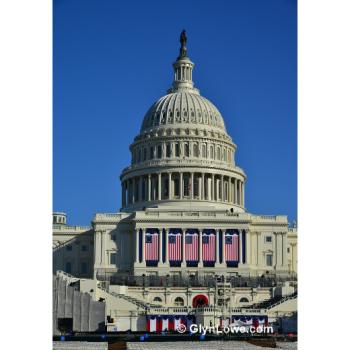So, Christians should love gay men and women and stand in solidarity with those who are mistreated. But do you think that homosexuality is wrong, and that Christians have an obligation to say so?
Sincere Christians see this issue differently. Christians who think homosexuality is categorically wrong certainly say so. And those of us who don't see the issue in those terms try to talk about it in the ways we think are most truthful, accurate, just, compassionate, and faithful to God and neighbor. If you ask me, "Do you think heterosexuality is right or wrong?" I would have to say, "That depends on a lot of things -- like who, when, how, why, and so on." My answer regarding homosexuality would have to be at least that nuanced.
The call to solidarity with gays who are mistreated is compelling. I imagine, with regret, how different the relationship would have been if evangelicals had been the first to respond to the AIDS crisis and serve those who were dying in the wards. But are there limits? Can someone who believes homosexuality is wrong stand in solidarity with gays in such a way that he does not implicitly condone what he feels is morally wrong?
This question is so helpful because it acknowledges the fact that some of us -- not just evangelicals, but also Catholics and Mainliners and Eastern Orthodox -- believe homosexuality is a simple, clear-cut matter of sin, period, that it's absolutely and categorically wrong and evil all the time. And, as you suggest, those who see homosexuality as wrong can still be highly compassionate and humane toward gay people, if they choose to.
It's ironic that we make so much of whether gay people choose their orientation, but not that much about whether non-compassionate people choose theirs! So people who believe homosexuality is sin can -- and I would say should -- choose compassion to the limits of their conscience and ability. I find it terribly disappointing when Christians act as if their disapproval of homosexuality exempts them or prohibits them from showing basic neighborly compassion to their gay brothers and sisters and friends. It's as if Jesus said, "Love your neighbor as yourself, unless he is gay." You would think a person's understanding of his or her own sinfulness and God's extraordinary mercy would make him or her highly merciful to others, but sometimes it doesn't. Thanks to the good work of courageous evangelical Christians like Andrew Marin, though, I think that's beginning to change in a positive direction, even among some very conservative and strict evangelicals. I thank God for this.
Many of us don't share the traditional assessment of the nature of homosexuality. I am among this group. We used to hold the traditional view because it's what we were taught and we hadn't been convinced otherwise, but now, for a variety of reasons both biblical and personal, we can no longer in good conscience agree with that teaching. And we have found that when we remove the assumption that gay people are simply choosing to rebel against nature and God, it's far easier to show compassion. But maybe it makes the compassion seem even more heroic when it is expressed by those who see homosexuality as sin.
I accept your contention that the American evangelical church, historically, became so associated with conservative politics that it lost its capacity to speak prophetically to the Right. Now that the Democratic party is in power, and people on the Evangelical Left like Jim Wallis have positions of extraordinary influence, I wonder if you worry about the same thing happening on the Left. Are progressive evangelicals as prophetic as they should be when it comes to pointing out deceptions and hypocrisies in liberal politicians?
Before answering your question, let me offer a couple of related observations. First, the party in power doesn't seem to have that much power these days! Our government seems to be pretty much deadlocked on many of the issues that matter most, even though it can generate a lot of sound and fury on issues that help parties get re-elected. Second, I have great respect for Jim Wallis, and I think the President does as well, but I don't get the impression that Jim is having the kind of "extraordinary influence" that his counterparts had on the previous administration. Third, even if the White House is listening to people like Jim, I don't think anyone's moral influence on the Congress is close to overcoming the influence of wealthy party loyalists, lobbyists, and major corporations. Fourth, for every Jim Wallis proclaiming the biblical call to social justice, there are lots of other voices on cable news and talk radio and religious broadcasting that are promoting an opposing set of values, often in the name of God. Fifth, I don't think Jim would be terribly happy with the term "Evangelical Left," because he feels, as many of us do, that the typical left-right polarity clouds as much as or more than it clarifies. All that's to say that Jim and the rest of us have plenty of prophetic work to do in relation to people of both parties!




